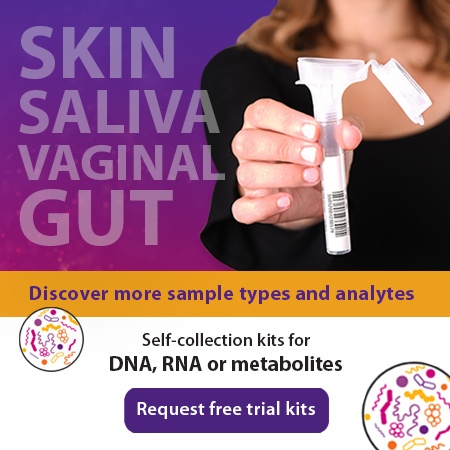2011-07-13
Some researchers studying infectious diseases will use frozen whole mouth fluid (WMF) as a sample type for collecting microbial DNA. Storage of viable samples requires a modern lab infrastructure with cold storage and DNA from frozen WMF can be difficult to extract. In any low resource setting such as in developing countries, cold storage is a scarce resource and high ambient temperatures prevail. In addition, collections may occur in rural areas away from processing laboratories making traditional sample collection methods a challenge. Recently, a team of researchers undertook a study designed to evaluate DNA from saliva collected with OMNIgene™•DISCOVER for infectious disease sampling, allowing for easy collection, reliable transport and stabilization with no sample degradation.
UPDATE: OMNIgene⋅DISCOVER is no longer available, it has been replaced by OMNIgene⋅ORAL
Various collection methods were assessed in this study, including collecting WMF into a chilled collection cup or via mouthwash. Both methods required immediate chilling of the sample for long-term storage. As an alternative, researchers evaluated DNA Genotek’s OMNIgene•DISCOVER sample collection kit which is designed to collect DNA from saliva at ambient temperature. Saliva specimens were collected from 10 HIV-positive patients in Kenya using OMNIgene•DISCOVER. These samples maintained high quality DNA, even after the collected specimens were stored for 14 months at room temperature and shipped to a laboratory several thousand miles away in Australia for processing.
The OMNIgene•DISCOVER kit gave researchers the ability to collect high quality microbial DNA with consistent results and yields on par with traditional methods. OMNIgene•DISCOVER is an excellent asset to field studies in developing countries where lab infrastructure is poor, cold storage is scarce and access to processing facilities requires lengthy transport.
To learn more about how OMNIgene•DISCOVER enabled the study of HHV-8, download the full report here.


